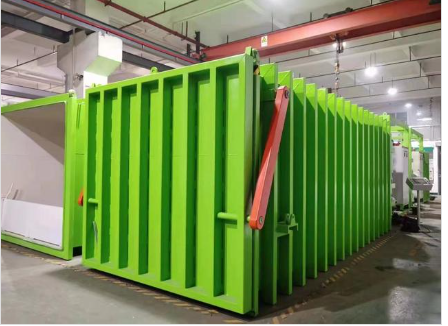industrial condenser
Understanding Industrial Condensers A Vital Component in Thermal Systems
In the realm of industrial processes, efficiency and reliability are paramount. One of the key components that contribute significantly to the efficacy of thermal systems is the industrial condenser. These heat exchangers play a crucial role in various industries such as power generation, chemical processing, and refrigeration, ensuring that systems operate smoothly and effectively.
What is an Industrial Condenser?
An industrial condenser is a device used to condense vapor into a liquid by removing heat from the vapor as it passes through the condenser system. This process is essential for various applications where maintaining temperature control and maximizing energy efficiency are critical. By transforming vapor back into liquid, condensers help recycle resources and improve the overall efficiency of thermal systems.
Types of Industrial Condensers
There are several types of industrial condensers, each suited for different applications and working conditions. The most common types include
1. Air-Cooled Condensers These systems use air to absorb heat from the refrigerant being condensed. They are commonly used where water is scarce or where cooling water is not economically feasible.
2. Water-Cooled Condensers Utilizing water as the cooling medium, these condensers are typically more efficient than air-cooled models, especially in larger industrial settings. They require a source of water and are often used in power plants and large refrigeration systems.
3. Shell and Tube Condensers This design features a series of tubes, with one fluid passing through the tubes and another fluid (usually a coolant) flowing around them. This type is favored for its durability and efficiency in heat transfer.
4. Plate Condensers Comprising multiple thin plates, these condensers allow for high heat transfer efficiency and compact design, making them ideal for applications with limited space.
The Role of Industrial Condensers in Energy Efficiency
One of the primary functions of industrial condensers is to enhance energy efficiency. By ensuring that vapor is condensed back into liquid form, they help maintain the pressure and temperature within thermal systems. This not only reduces energy consumption but also prolongs the life of the equipment by preventing overheating and other thermal stresses.
industrial condenser

Furthermore, condensers recover energy that would otherwise be lost in the condensation process. For instance, in cogeneration systems, where heat is recovered from exhaust gases, industrial condensers contribute significantly to overall system efficiency by reusing the waste heat.
Applications of Industrial Condensers
Industrial condensers are employed across various sectors
- Power Generation In steam power plants, condensers facilitate the conversion of steam back into water, allowing it to be reused in the steam cycle, thus optimizing the efficiency of the plant.
- Chemical Processing They are integral in chemical reactors where the cooling of vapors is necessary for the production of various chemicals.
- HVAC Systems In heating, ventilation, and air conditioning systems, condensers help regulate temperature and humidity levels, contributing to overall indoor climate control.
- Food and Beverage Industry Industrial condensers are also used in food processing facilities to purify and condense vapor, which is critical for maintaining product quality and safety.
Challenges and Maintenance
While industrial condensers are vital for operational efficiency, they are not without challenges. They can be susceptible to fouling, corrosion, and scaling, which can hinder performance and lead to increased operational costs. Regular maintenance, including cleaning and inspections, is essential to ensure that condensers operate optimally.
Additionally, advancements in technology have led to the development of smart condensers equipped with sensors that monitor performance in real-time, allowing for predictive maintenance and improved reliability.
Conclusion
Industrial condensers are indispensable components within thermal systems, playing a crucial role in energy efficiency, process reliability, and sustainability. Understanding their function, types, and applications is essential for engineers and operators alike to enhance industrial performance. As industries continue to evolve, so too will the technology and design of condensers, further influencing the efficiency and effectiveness of industrial processes.
















































































































